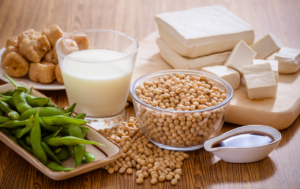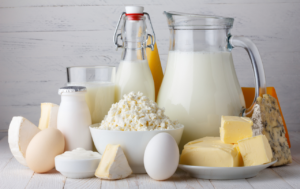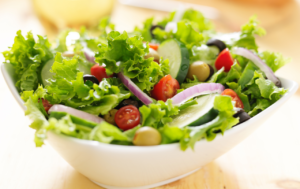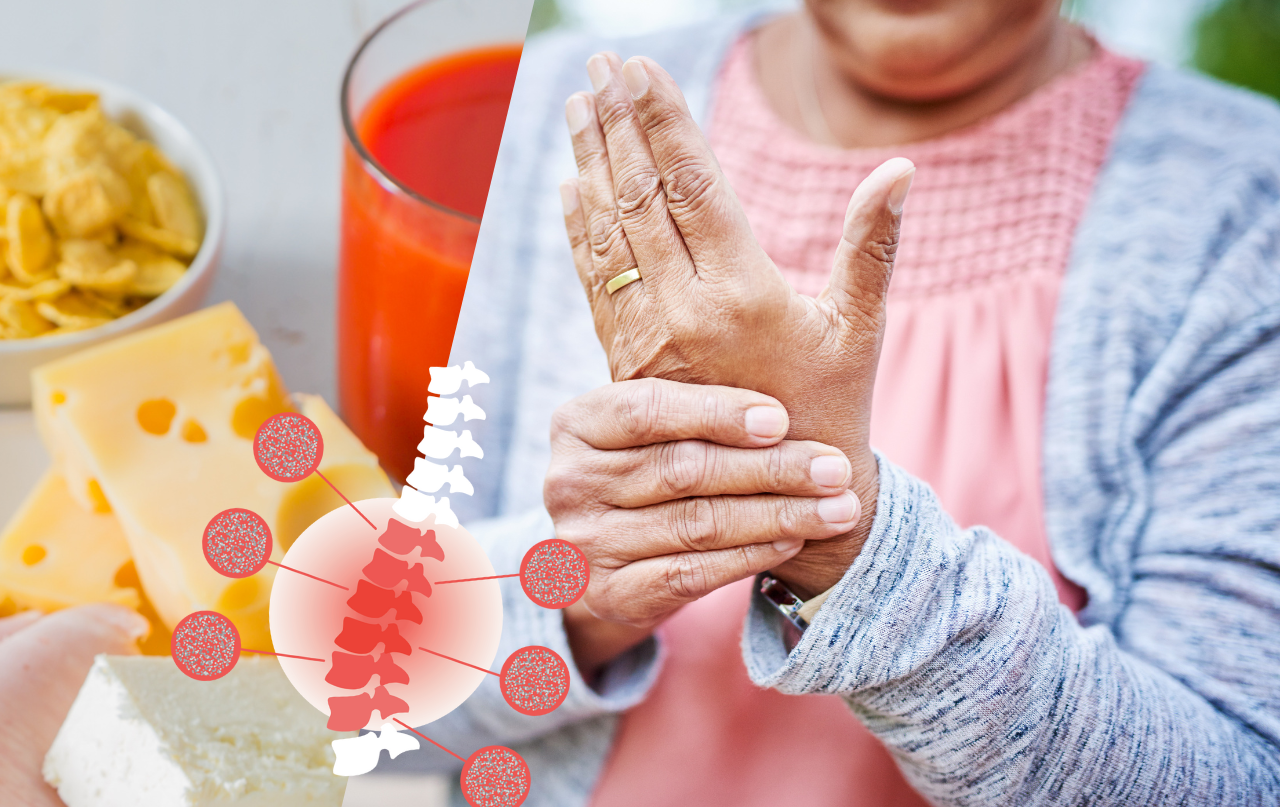Osteoporosis is a widespread bone disorder that affects millions of individuals worldwide. This condition causes bones to become brittle and fragile, making them more susceptible to fractures. The good news is that by incorporating certain nutrients into your diet, you can prevent or manage osteoporosis. This article will discuss 8 food options that can be added to your diet to help prevent osteoporosis.
A Brief Overview of Osteoporosis
The disease osteoporosis affects the bones in your body. It weakens and brittles your bones, making them more susceptible to fractures. Osteoporosis is often referred to as a “silent disease” because there are usually no symptoms until a bone breaks. Osteoporosis is most prevalent in women, especially after menopause, but males can also develop it.
The Significance of Calcium and Vitamin D
Calcium and vitamin D are essential nutrients for bone formation and maintenance. Calcium is the primary structural component of bones, while vitamin D aids in calcium absorption. To prevent osteoporosis, it is vital to consume sufficient amounts of these nutrients.
Calcium-Abundant Foods
Here are some foods that are abundant in calcium that you can incorporate into your diet:
1. Fortified Foods
Calcium is added to some meals, including orange juice, soy milk, and cereals. If you do not consume dairy products, these foods can be a useful source of calcium.

One cup of fortified orange juice, for example, has approximately 350 milligrams of calcium, while one cup of fortified soy milk contains approximately 300 milligrams of calcium. Fortified cereals are likewise high in calcium, with one cup containing ranging from 100 to 1000 mg of calcium.
It is critical to examine the labels of these fortified foods to verify that they include adequate amounts of calcium and other essential elements.
2. Supplemented Foods
In addition to fatty fish and egg yolks, vitamin D is added to other foods. Included in these foods are citrus juice, soy milk, and cereals. As previously stated, if you do not consume fatty fish or egg yolks, these fortified foods may be an excellent source of vitamin D.

One cup of fortified orange juice contains approximately 100 IU of vitamin D, whereas one cup of fortified soy milk contains approximately 120 IU of vitamin D. Fortified cereals are also an excellent source of vitamin D, with one serving containing anywhere between 40 and 1000 IU.
3. Soybean Products
Soy products, including tofu and soy milk, contain isoflavones, which are plant-based compounds that can aid in increasing bone density. Isoflavones have estrogen-like properties, which can protect postmenopausal women from bone loss.

One cup of soy milk contains approximately 300 milligrams of calcium and 100 international units of vitamin D, making it an excellent dairy milk substitute. Tofu is also an excellent source of calcium and protein, with approximately 200 milligrams of calcium and 10 grams of protein per half-cup serving.
4. Nuts and Seeds
Nuts and seeds are an excellent source of calcium, magnesium, and other bone-health-promoting nutrients. In addition to being rich in healthful fats and fiber, they make an excellent snack option.

One ounce of almonds contains approximately 75 milligrams of calcium, making them a particularly rich source of calcium. Also high in calcium, one tablespoon of sesame seeds contains approximately 88 milligrams of calcium. One tablespoon of chia seeds contains approximately 63 milligrams of calcium, making them an additional excellent source of calcium.
5. Beans
Beans, such as black beans and kidney beans, are an excellent source of calcium and other essential nutrients for bone health. In addition to being high in fiber and protein, they are an excellent complement to any meal.
One cup of cooked black beans contains approximately 60 milligrams of calcium, whereas one cup of cooked kidney beans contains approximately 40 milligrams. Additional legumes, including white beans and navy beans, are also rich in calcium.
6. Dairy Goods
Dairy products are one of the most well-known sources of calcium, a mineral required for the formation and maintenance of strong bones. Dairy products, in addition to calcium, contain other key nutrients such as protein, vitamin D, and potassium, all of which are required for healthy bone health.

Milk is the most common dairy product and a rich source of calcium, with one cup delivering approximately 300 milligrams. Low-fat milk is a better choice than whole milk since it includes less saturated fat. Yogurt is another dairy product high in calcium, with one cup of plain yogurt delivering approximately 400 mg. Greek yogurt is also high in protein and has less sugar than conventional yogurt.
Cheese is another calcium-rich dairy product, with one ounce containing approximately 200 milligrams of calcium. Cheese, on the other hand, is high in saturated fat and should be consumed in moderation.
7. Leafy Greens
Leafy greens are high in calcium and other elements that are essential for bone health. They are also high in fiber and low in calories, making them a wonderful supplement to any diet.

Calcium-rich foods include kale, collard greens, and spinach. One cup of cooked kale has around 100 milligrams of calcium, but one cup of cooked collard greens contains approximately 350 milligrams of calcium. Spinach is also high in calcium, with one cup of cooked spinach containing roughly 240 mg.
Aside from calcium, leafy greens are high in vitamin K, which is essential for bone health. Vitamin K aids calcium absorption and contributes to bone growth.
8. Oily Fish
Fatty fish, such as salmon, mackerel, and tuna, are high in vitamin D, which is necessary for bone health. Vitamin D aids calcium absorption and is essential for muscle function and the immunological system.
One 3-ounce serving of salmon contains around 450 international units (IU) of vitamin D, which is more than the daily recommended dose for the majority of people. Mackerel and tuna are also high in vitamin D, with one meal delivering approximately 250 IU.
Some fish, such as swordfish and king mackerel, contain high levels of mercury and should only be ingested in moderation.
Conclusion
The appropriate items in your diet can help you prevent or treat osteoporosis. Calcium and vitamin D are important minerals for bone health and are found in dairy products, leafy greens, fatty fish, and fortified foods. Furthermore, soy products, nuts and seeds, beans, and vegetables are high in nutrients that can assist promote bone density. By incorporating these foods into your diet, you can help prevent or manage osteoporosis.
You may also check out this video about 7 Benefits of Milk.





